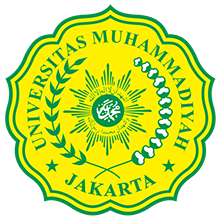Building the Values of Social Concern and Empathy in Students of Mattayom (Secondary School) Prateeptham Foundation School, Krabi, Thailand
Abstract
Social awareness is an attitude or action that always wants to help, share, assist, and give to others. One of the factors that forms social awareness is empathy, the ability to put oneself in someone else's shoes, to understand the views and feelings of people or to experience what the person is experiencing. This attitude is in line with the goals of Prateeptham Islamic Foundation School, that is to enable students to have morality, ethics, and desirable characteristics including love for the nation, religion, and king, love of being Thai, honesty, disciplined, eagerness to learn, live simply, and have public spirit, be determined to work, be aware of and see their own value, have a sense of responsibility, and participate in conserving natural resources and developing the environment. Community Service of the University of Muhammadiyah Jakarta at Prateeptham Islamic Foundation School, Krabi, Thailand aims to build values of social awareness and empathy in students in order to foster enthusiasm and social awareness in the school environment. The method used in building values of social awareness and empathy in students at this school is implemented using the Project based Learning approach. The result of this community service activity is the growth of enthusiasm and social awareness in the school environment. In addition, it is also beginning to show that students are more concerned about social problems in the environment where they live.
Keywords
Full Text:
PDFReferences
R. A. Sudrajad, A. Purnomo, and I. D. P. Eskasasnanda, ‘Meningkatkan Kepedulian Sosial Anak Melalui Pendampingan Komunitas Kepemudaan “Dulur Never End”’, Socia: Jurnal Ilmu-ilmu Sosial, vol. 18, no. 2, pp. 131–138, Dec. 2021.
N. M. Apriyani, D. A. Soleh, and M. S. Sumantri, ‘TINGKAT KEPEDULIAN SOSIAL SISWA SEKOLAH DASAR’, JURNAL PENDIDIKAN DASAR PERKHASA: Jurnal Penelitian Pendidikan Dasar, vol. 7, no. 2, pp. 110–117, Oct. 2021, doi: 10.31932/jpdp.v7i2.1231.
A. Tabi’in, ‘MENUMBUHKAN SIKAP PEDULI PADA ANAK MELALUI INTERAKSI KEGIATAN SOSIAL’, Jurnal IJTIMAIYA: Journal of Social Science Teaching, vol. 1, no. 1, pp. 39–59, 2017.
S. Kabiri, J. Choi, N. Kruis, S. M. Shadmanfaat, and J. Lee, ‘Social Concern as a Means of Understanding the Risk of Workplace Deviance’, Deviant Behav, vol. 43, no. 8, pp. 939–958, 2022, doi: 10.1080/01639625.2021.1942328.
A. P. Ningsi and A. Suzima, ‘TINGKAT PEDULI SOSIAL DAN SIKAP PEDULI SOSIAL SISWA BERDASARKAN FAKTOR LINGKUNGAN’, Jurnal Pelangi, vol. 12, no. 1, pp. 9–15, Aug. 2021, doi: 10.22202/jp.2020.v12i1.3337.
W. Winangsih, L. Yuniarti, E. Apriyanti, T. Bustanul Arifin Bandung Barat, T. BustanulArifin Bandung Barat, and I. Siliwangi, ‘MENINGKATKAN SIKAP EMPATI MELALUI METODE MENDONGENG PADA ANAK USIA DINI’, JURNAL CERIA , vol. 1, no. 3, pp. 2614–4107, 2018.
P. Stoev and M. Stoeva, ‘Building Empathy in Students by Developing Cyber-Physical Projects Through Design Thinking’, in Journal of Physics: Conference Series, Institute of Physics, 2024. doi: 10.1088/1742-6596/2701/1/012041.
M. Nk, ‘MANAJEMEN EMPATI KONSELOR (Analisis Problematika Koselor dalam Menghadapi Emosi Negatif Klien)’, JURNAL AT-TAUJIH: BIMBINGAN DAN KONSELING ISLAM, vol. 6, no. 1, pp. 40–55, 2023, [Online]. Available: http://jurnal.ar-raniry.ac.id/index.php/Taujih
A. Angelyna and F. Liauw, ‘FENOMENOLOGI SEBAGAI METODE PENGEMBANGAN EMPATI DALAM ARSITEKTUR’, Jurnal Sains, Teknologi, Urban, Perancangan, Arsitektur (Stupa), vol. 2, no. 2, pp. 1413–1426, Nov. 2020, doi: 10.24912/stupa.v2i2.8535.
S. A. Krol and J. A. Bartz, ‘The Self and Empathy: Lacking a Clear and Stable Sense of Self Undermines Empathy and Helping Behavior’, Emotion, vol. 22, no. 7, pp. 1554–1571, 2022, doi: 10.1037/emo0000943.
Y. Mulyawati, A. Marini, M. Nafiah, and N. Jakarta, ‘Pengaruh Empati Terhadap Perilaku Prososial Peserta Didik Sekolah Dasar’, Scholaria: Jurnal Pendidikan dan Kebudayaan, vol. 12, no. 2, pp. 150–160, May 2022.
A. Yaqin, ‘ANALISIS FAKTOR-FAKTOR YANG MEMPENGARUHI EMPATI PESERTA DIDIK DAN METODE PENGEMBANGANNYA’, Tarbiya Islamia: Jurnal Pendidikan dan Keislaman, vol. 11, no. 1, pp. 1–10, 2021.
Lajnah Pentashihan Mushaf Al-Qur’an, ‘Qur’an Kemenag’, Kementerian Agama RI. Accessed: Jan. 12, 2024. [Online]. Available: https://quran.kemenag.go.id/quran/per-ayat/surah/4?from=1&to=176
M. Arif, J. D. Rahmayanti, and F. D. Rahmawati, ‘Penanaman Karakter Peduli Sosial Pada Siswa Sekolah Dasar’, QALAMUNA: Jurnal Pendidikan, Sosial, dan Agama, vol. 13, no. 2, pp. 289–308, Jul. 2021, doi: 10.37680/qalamuna.v13i2.802.
J. Lunn, C. L. Bell-Huff, and J. M. LeDouch, ‘Cultivating Inclusivity: A Systematic Literature Review on Developing Empathy for Students in STEM Fields’, in Conference: 2022 CoNECD (Collaborative Network for Engineering & Computing, New Orleans, Feb. 2022, pp. 1–30. Accessed: Jan. 14, 2024. [Online]. Available: https://strategy.asee.org/cultivating-inclusivity-a-systematic-literature-review-on-developing-empathy-for-students-in-stem-fields
‘โรงเรียนประทีปธรรม มูลนิธิ Prateeptham Foundation School’. Accessed: Jan. 12, 2024. [Online]. Available: https://prateeptham.org/%e0%b8%aa%e0%b8%b7%e0%b9%88%e0%b8%ad%e0%b8%81%e0%b8%b2%e0%b8%a3%e0%b8%aa%e0%b8%ad%e0%b8%99/about
‘Prateeptham Islamic Foundation School’, Google Map. Accessed: Jan. 14, 2024. [Online]. Available: https://www.google.com/maps/place/%E0%B9%82%E0%B8%A3%E0%B8%87%E0%B9%80%E0%B8%A3%E0%B8%B5%E0%B8%A2%E0%B8%99%E0%B8%9B%E0%B8%A3%E0%B8%B0%E0%B8%97%E0%B8%B5%E0%B8%9B%E0%B8%98%E0%B8%A3%E0%B8%A3%E0%B8%A1%E0%B8%A1%E0%B8%B9%E0%B8%A5%E0%B8%99%E0%B8%B4%E0%B8%98%E0%B8%B4+:Prateeptham+Islamic+Foundation+School/@8.2836865,98.6406305,15z/data=!4m6!3m5!1s0x3051af5d70497911:0x10e16fa2d8b8dd3a!8m2!3d8.2900084!4d98.6531065!16s%2Fg%2F1pp2tgxx_?entry=ttu
Lizamah and Ulfah, ‘Kepedulian Sosial (Surah al-Mā’ūn Perspektif Buya Hamka Dalam Tafsir al-Azhar)’, JADID: Journal of Quranic Studies and Islamic Communication, vol. 02, pp. 108–146, 2022.
Refbacks
- There are currently no refbacks.
This work is licensed under a Creative Commons Attribution-NonCommercial 4.0 International License












